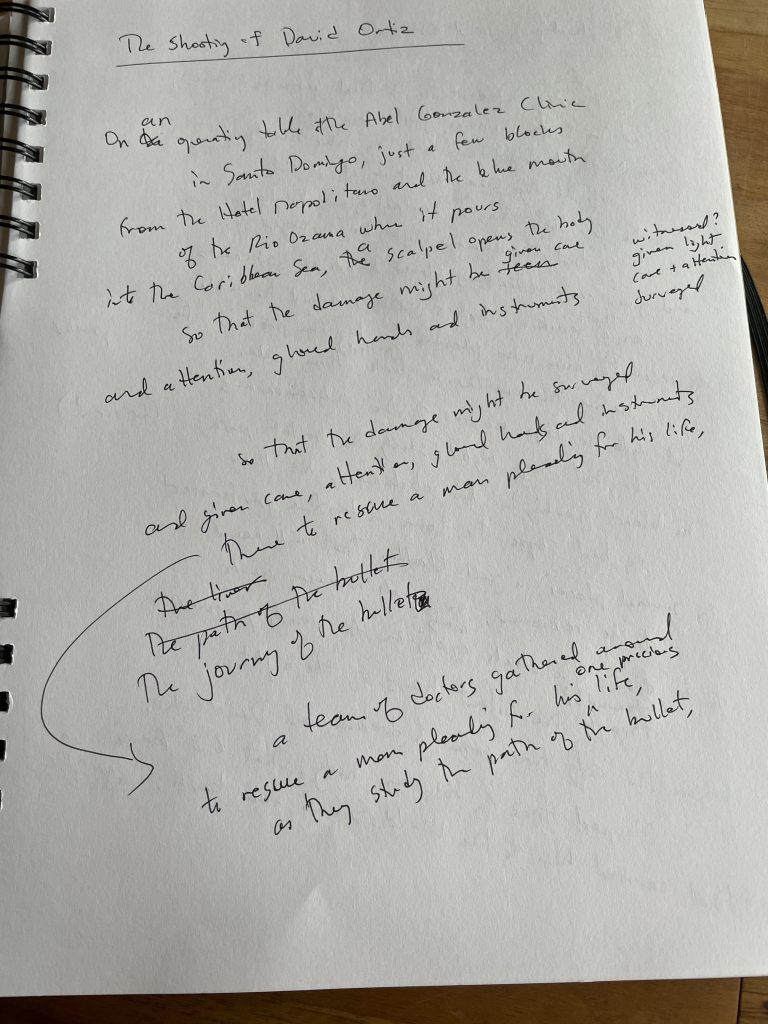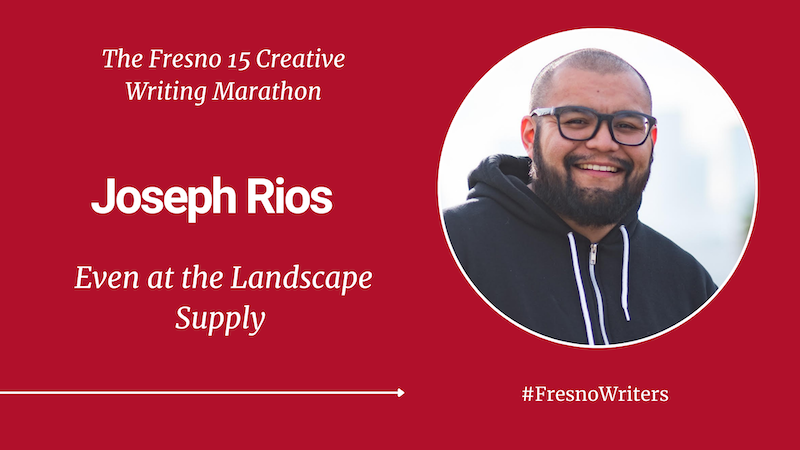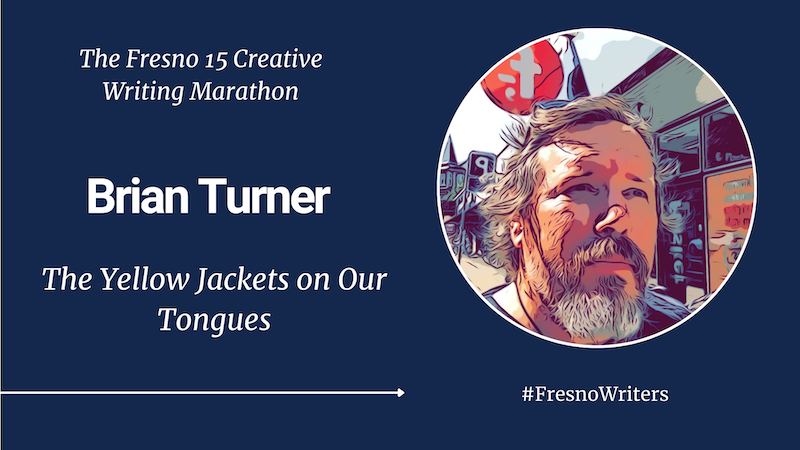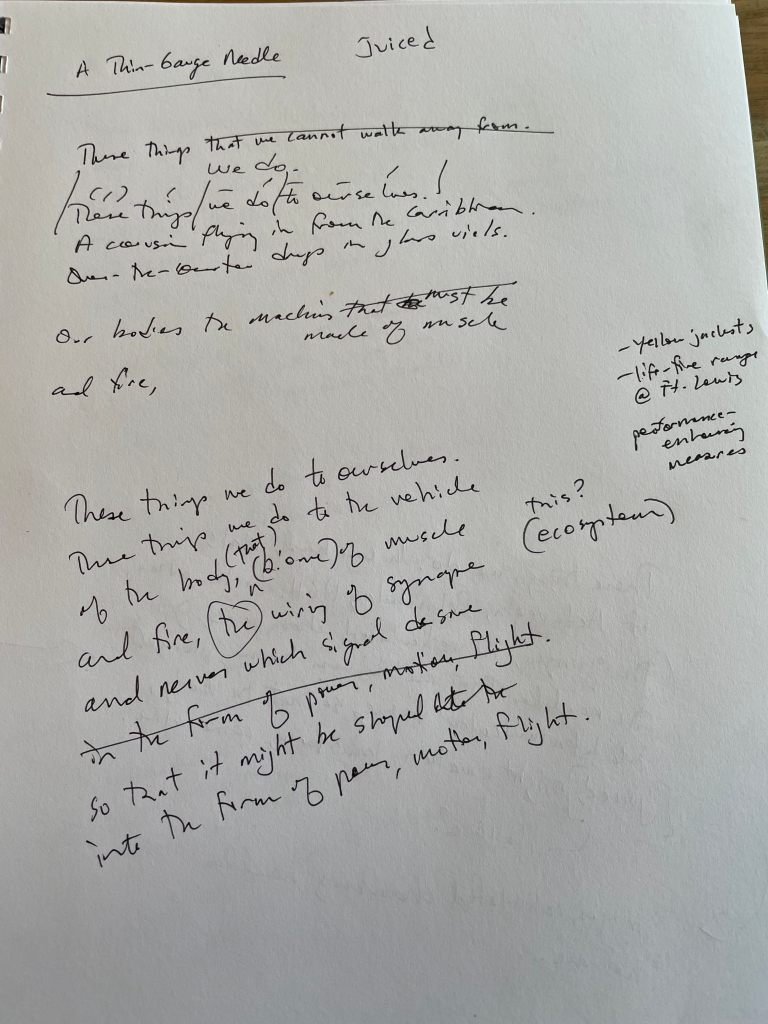Brian Turner
“The moment always comes when, having collected one’s ideas, certain images, an intuition of a certain kind of development… one must pass on to the actual realization. This is the most delicate moment…the moment when the poet or writer makes his first mark on the page, the painter on his canvas, when the director arranges his characters in their setting, makes them speak and move, establishes, through the compositions of his various images, a reciprocal relationship to the dialogue and that of the whole sequence.” —Michelangelo Antonioni
I’m not fond of Antonioni’s insistence on using the ‘he’ pronoun, but the meditation itself leads us into the blank page, the silence where language arrives, the space where music and movement and thought begin to inhabit the poem, stanza by stanza, room by room, page by page.
The Yellow Jackets on Our Tongues
These things we do to ourselves.
These things we do to the vehicle
of the body, to the biome of muscle
and fire, to the scaffolding of neurons
and synapses that signal desire
into the forms of power, motion, flight.
These things we do. In one hand, vials
of Actovegin, Primobolan, HGH. In the other,
syringes, reticulated chambers, needles
that are driven home, plunged
into intramuscular tissue so that the body,
juiced, might awaken, transform, come alive.
Canseco wrote a book about it. And then another,
dropping name after name. But there’s nothing new
in this. Even Ruth once injected himself with fluid
extracted from sheep testicles, all done to enhance
performance. Hormones, steroids, cocaine,
amphetamines—the game has seen it all.
What was it that Reggie Jackson said?
It takes talent to run fast, but it doesn’t take talent
to run hard. Effort is the least we can ask
of ourselves. I remember my father saying
something similar—when I asked,
what does it take to be a good soldier?
To be an infantryman, he said, to survive
the battlefield—you have to be incredibly smart,
because you’re being hunted by human beings,
just as you are hunting them, and you need to be
a world-class athlete. And I remember thinking
that I was none of these things, an idea
that stayed with me even as I became a sergeant,
training late in the rain-soaked woods at Ft. Lewis,
Washington, our squad told to start over, and over,
to go back, reset, do it again, clearing the chambers
and then reloading, firing live rounds into the forest
in front of us, killing ferns and bark and the night itself,
over and over, do it again, 1 AM, 2, our uniforms
caked in mud and glued to our bodies with sweat
and exhaustion, my squad leader pulling me aside
to whisper, Hey, Brian, try a couple of these, man,
his palm lit by moonlight angling through the pines,
the yellow jackets in his hand, a gift, two capsules
he promised would help me to kill the forest
better, that it would help me to lead my team
up the slope and into the concertina wire.
Everything depends upon this. These things we do.
The speed of the mind. The speed of the body.
The acceleration. The rush. The lightning within
that alters the course of history. Everything
depends upon this. The way we climb the hill.
The way we plunge the needle into muscle.
The way we move to our left or right. The way
we respond to light. The way we slough away our bodies
over and over, monstrous, beautiful, strangers even to ourselves.

















